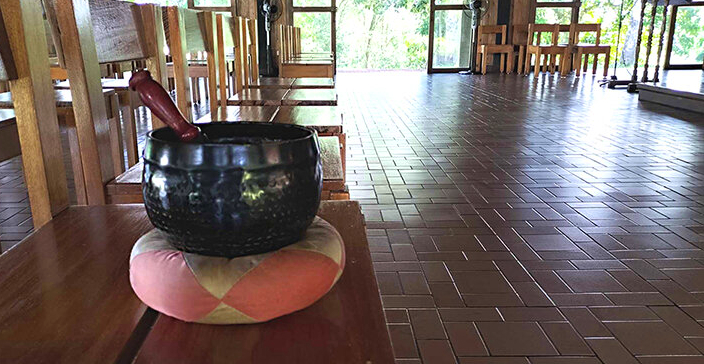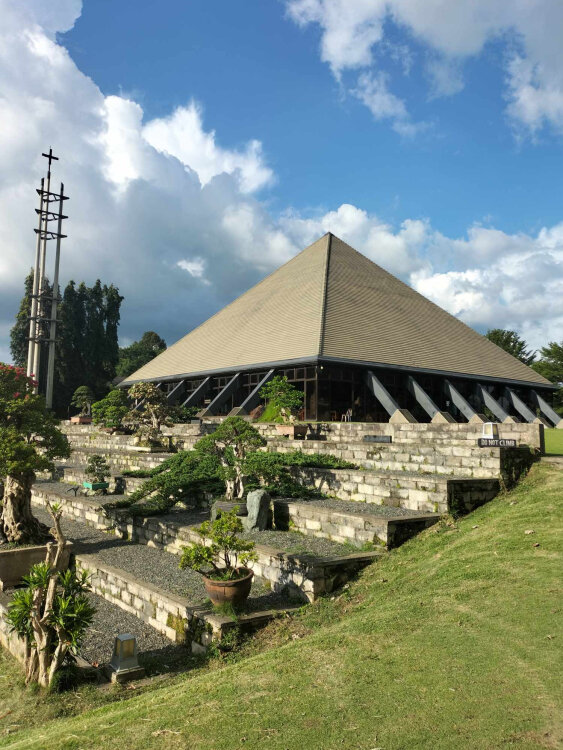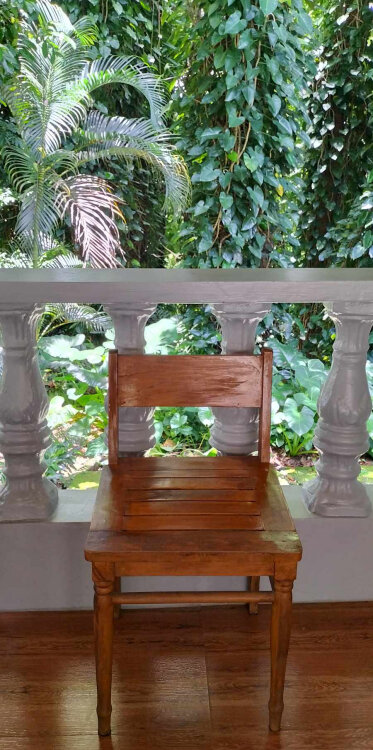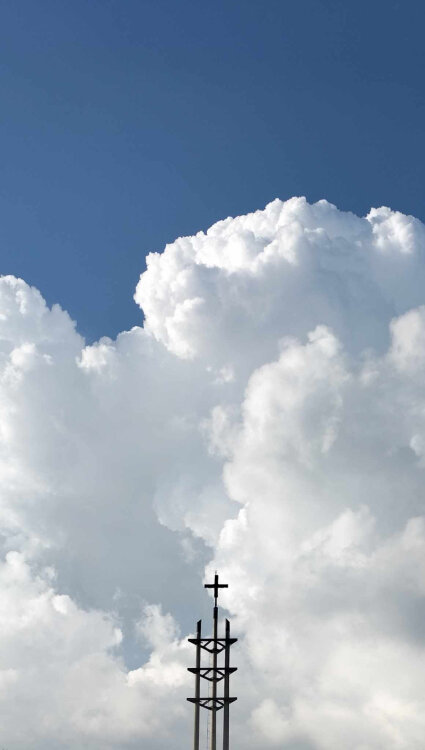
Trust and Surrender: Thoughts from an Intensive Meditation Retreat
Every now and again, it benefits one to step back from life – to breathe, to take stock, to reset one’s perspective. This past August 18 to 25, I was fortunate to do just that, joining a group of meditators from Heartspace Manila on retreat at the Abbey of the Transfiguration, Heartspace’s birthplace in Malaybalay, Bukidnon.

The Intensive Meditation Retreat (IMR) has long been offered by Heartspace to its meditators, and for some of us is an annual practice. It involves five to 30 days of strict silence, punctuated by four 30-minute meditation sits a day. There is no input in the form of lectures or talks. Time between sits and meals is given to personal reflection, spiritual reading, Mass and the Divine Office at the abbey church, taking in the lush natural surroundings, or simply resting.
It had been the custom of our retreat master, Fr. Pachomius, to provide spiritual books during the IMR. On this occasion, however, I found none, though I kept an eye out from the start of the retreat. Disappointed, I turned to my phone for reading material, and found among my downloads Thomas Kempis’ The Imitation of Christ, and a series of books and study guides entitled, When You Pray: Trust, Surrender, and the Transformation of Your Soul, by Edward Sri. These would aid my reflections over the next eight days.
Hence the title of this post, “Trust and Surrender”. This was reinforced for me on Tuesday when the responsorial psalm at Mass was Psalm 23, “The Lord is my shepherd, I shall not want…” And on Thursday, the Queenship of Mary, it was reiterated in Fr. Paco’s homily, where he spoke of the trust and surrender of our blessed Mother to the will of God.

As a Heartspacer, I found this very relatable to meditation. Christian meditation, after all, the sit, is an act of surrender. It requires us to give up all thoughts, images, plans, fears, preoccupations, imaginings, everything that makes us who we are – or that we think makes us who we are. We restrict movement, and forego speech, and surrender ourselves to stillness and silence, and the simplicity of the mantra.
To do this, and to do it daily, twice a day for half an hour, is an act of trust. Trust that we are not wasting our precious time. Trust that what we are doing is actually prayer. Trust that it is one of the most valuable, worthwhile things we can do in our busy day. And trust that God is with us in our sit, trust that in surrendering all we have to Him, we do not deny or invalidate our existence, but in fact discover more wholly who we are and who we are meant to be.
St. Therese of Lisieux recommended surrender and trust as a way to holiness. She called it the way of spiritual childhood.
To surrender: We are to accept our faults, accept the truth of our complete dependence on God, and surrender it all to the Lord.
To trust: We recognize that we cannot change what we have done, and we may not have it in us at present to overcome a certain weakness. But we can place all our confidence in Jesus, trusting in his mercy and trusting that the Lord will forgive us and heal and transform us in His time and in His way.
This was some comfort to me, as I struggled with certain habitual sins. Almost as soon as I confessed them, it seemed, I found myself falling again. Sometimes I despaired of ever changing. This, of course, put a strain on my relationship with God. How could I, such a hopeless sinner, approach Him?
It dawned on me that I’d been putting conditions on His love, and trying to mend my brokenness myself when really only He could fix me. St. Therese put it beautifully:
You want to climb the mountain, whereas God wishes you to descend it. He is awaiting you in the fruitful valley of humility.

God wants to meet the real you, as you are, with all your faults and shortcomings, not the ideal “you” you hope to become someday.
This applies to meditation. Some might labor under the notion that a sit must be perfect to have merit. There is no such thing. There will always be distractions. And there’s no telling what kinds of distractions will interrupt the repetition of the mantra – they might be trivial and pleasant, stubbornly persistent or annoying, even disturbing or unsettling.
But John Main says multiple times that we all come to the sit as beginners, whether we’ve been meditating for 10 years or 10 days, whether we enjoy 20 minutes of distraction-free prayer or five.
God meets us where we are. He is not more or less present depending on how “well” you meditate. And if some people experience consolations and revelations and heightened awareness and answered prayers, and attribute them to the sit, that is not the point. What matters is approaching the practice with childlike trust and humility and faithfulness. What matters is being on the way.
This was my mistake on a previous IMR. I was measuring myself against my companions who I thought were “better” meditators than I was, and who had been much longer on their faith journey. I felt like I was out of my depth, like I didn’t belong.

This year I tried to focus on my own walk of faith, not theirs. And what was clear to me during the IMR was that I needed to trust God and surrender to Him more.
I realized, too, that part of my inability to trust and surrender was the fear that God would take away from me everything I was attached to, or that He would demand something impossibly difficult of me.
I came to the admission as well that I feared becoming a mere cog in His machine. I feared that, like people I’d known, He valued me only insofar as I fit into His plans. Take away my usefulness, and I might as well not exist. I doubted His love, and so I believed that, in everything, I had to look out for myself, because no one else would look out for me, not even God. Everyone had their priorities, and I wasn’t one of them.

The late Pope Benedict XVI addressed this kind of thinking when he said,
Do not be afraid of Christ! He takes nothing away, and He gives you everything. When we give ourselves to Him, we receive a hundredfold in return. Yes, open, open wide the doors to Christ – and you will find true life.
I was moved in my reading by an analogy from the Belgian spiritual writer Fr. Wilfrid Stinissen, O.C.D. He likens life to a violin. You can give the violin to an amateur musician and ask them to play a song, and possibly they will play that song perfectly, note for note, with perfect tempo and phrasing. But give that same violin to a master violinist, and he will play the same song with such skill, nuance, emotion and beauty that there will be simply no comparison.
When it comes to life, we are but amateur musicians. God is the master violinist.
– Anonymous Heartspacer